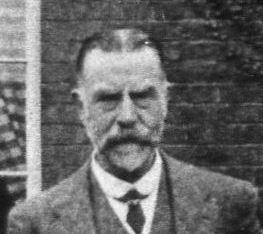A Quote by Theodore Parker
Every man has at times in his mind the Ideal of what he should be, but is not. This ideal may be high and complete, or it may be quite low and insufficient; yet in all men, that really seek to improve, it is better than the actual character... Man never falls so low, that he can see nothing higher than himself.
Related Quotes
People who have never had an ideal may hope to find one; they are in a better state than the people who allow the circumstances of life to break their ideal. To fall beneath one's ideal is to lose one's track in life; then confusion rises in the mind, and that light which one should hold high becomes covered and obscured, so that it cannot shine out to light one's path.
That low man seeks a little thing to do, Sees it and does it: This high man, with a great thing to pursue, Dies ere he knows it. That low man goes on adding one to one, His hundred's soon hit: This high man, aiming at a million, Misses an unit. That, has the world here-should he need the next, Let the world mind him! This, throws himself on God, and unperplext Seeking shall find Him.
may my heart always be open to little birds who are the secrets of living whatever they sing is better than to know and if men should not hear them men are old may my mind stroll about hungry and fearless and thirsty and supple and even if it's sunday may i be wrong for whenever men are right they are not young and may myself do nothing usefully and love yourself so more than truly there's never been quite such a fool who could fail pulling all the sky over him with one smile
Plato--who may have understood better what forms the mind of man than do some of our contemporaries who want their children exposed only to "real" people and everyday events--knew what intellectual experience made for true humanity. He suggested that the future citizens of his ideal republic begin their literary education with the telling of myths, rather than with mere facts or so-called rational teachings.




































